Copyright is originality and fixation
Original Works
Works are original when they are independently created by a human author and have a minimal degree of creativity. Independent creation simply means that you create it yourself, without copying. The Supreme Court has said that, to be creative, a work must have a “spark” and “modicum” of creativity. There are some things, however, that are not creative, like: titles, names, short phrases, and slogans; familiar symbols or designs; mere variations of typographic ornamentation, lettering, or coloring; and mere listings of ingredients or contents. And always keep in mind that copyright protects expression, and never ideas, procedures, methods, systems, processes, concepts, principles, or discoveries.
Fixed Works
In copyright law, a “fixed work” refers to an original creative expression that has been captured or recorded in a tangible medium or format. The fixation of the work is a requirement for copyright protection, as it provides a concrete form for the expression, making it possible to reproduce, distribute, and publicly perform or display the work.
A work is fixed when it is captured (either by or under the authority of an author) in a sufficiently permanent medium such that the work can be perceived, reproduced, or communicated for more than a short time. For example, a work is fixed when you write it down or record it.
What rights does copyright provide?
U.S. copyright law provides copyright owners with the following exclusive rights:
- Reproduce the work in copies or phonorecords.
- Prepare derivative works based upon the work.
- Distribute copies or phonorecords of the work to the public by sale or other transfer of ownership or by rental, lease, or lending.
- Perform the work publicly if it is a literary, musical, dramatic, or choreographic work; a pantomime; or a motion picture or other audiovisual work.
- Display the work publicly if it is a literary, musical, dramatic, or choreographic work; a pantomime; or a pictorial, graphic, or sculptural work. This right also applies to the individual images of a motion picture or other audiovisual work.
- Perform the work publicly by means of a digital audio transmission if the work is a sound recording.
Copyright also provides the owner of copyright the right to authorize others to exercise these exclusive rights, subject to certain statutory limitations.
How long does copyright protection last?
The duration of copyright protection varies based on when a work was created. For works created on or after January 1, 1978, the copyright term extends for the life of the author plus an additional 70 years after the author’s passing. In the case of joint works, the term lasts for 70 years following the death of the last surviving author. For works made for hire, as well as anonymous or pseudonymous works, copyright protection lasts for either 95 years from the date of publication or 120 years from the date of creation, with the shorter duration being applicable. Works created prior to 1978 have a different copyright duration structure. You can find more information about the duration of copyrights in the “Duration of Copyrights” Circular.
When can I use works that are not mine?
Agreements, Exceptions, and Limitations
It is important to know that we are all also copyright users. When we read books, watch movies, listen to music, or use videogames or software, we are using copyright-protected works.
So, even if you are not the owner of a work, you still may be able to use it. In addition to buying or licensing works (or some other way of seeking permission to use the work), you can also use one of the Copyright Act’s exceptions and limitations, or rely on works in the public domain.
The Copyright Act’s exceptions and limitations found in sections 107-122 include fair use, the “first sale doctrine,” some reproductions by libraries and archives, certain performances and displays, broadcast programming transmissions by cable and satellite, to name a few. Interested in more information on fair use? Take a look at our Fair Use Index. The complete list of exemptions to copyright protection can be found in chapter 1 of Title 17 of the United States Code.
You can also use works that are in the public domain. Works in the public domain are those that are never protected by copyright (like facts or discoveries) or works whose term of protection has ended either because it expired or the owner did not satisfy a previously required formality. Currently, all pre-1926 U.S. works are in the public domain because copyright protection has expired for those works.
What is copyright registration?
Copyright protection is automatically granted to an original work of authorship once it is fixed, but there are additional measures a copyright owner can take to strengthen these protections. One key step is registering the work. While registration is not obligatory, it is necessary for U.S. works to enforce exclusive copyright rights through litigation. Timely registration enables copyright owners to pursue specific monetary damages and attorney fees in the event of a lawsuit, and it establishes a presumption of the accuracy of the information on the registration certificate.
Copyright registration also provides value to the public overall. It facilitates the licensing marketplace by allowing people to find copyright ownership information, and it provides the public with notice that someone is claiming copyright protection. It also provides a record of this nation’s creativity.
There is only one place to register claims to copyright in the United States: the Copyright Office. For more information on registration benefits and procedures, please see our Copyright Registration Circular.
What about other intellectual property rights?
Patent and trademark are other types of intellectual property that may cover works and are considered separately from copyright eligibility. For example, patents, which are granted by the government, protect certain inventions or discoveries, designs for articles of manufacture, and plant varietals. Trademark law, on the other hand, protects words, names, symbols, or devices used in trade with goods or services to indicate the source of the goods and to distinguish them from the goods or services of others. For more information on these other types of intellectual property, take a look at the United States Patent and Trademark Office’s patent and trademark information.
What if there is change in ownership?
Document Recordation
The Copyright Office also records documents related to Copyright. This is known as Recordation, and means that the Office reviews and accepts documents, and keeps a record of, the documents people provide. Recordation relates to three different kinds of documents: transfers of copyright ownership, other documents relating to a copyright, and notices of termination, which authors or their heirs use when terminating certain transfers or licenses.
What is statutory licensing?
Statutory licenses are some of the limitations in the Copyright Act. They relate to certain uses of musical compositions, sound recordings, and cable and satellite programming. For comprehensive information on musical compositions and sound recordings, we have a number of useful resources like our Circulars and our dedicated Music Modernization Act page. For information on cable and satellite uses, visit our Licensing Division page.
The Copyright Office website, copyright.gov, is the definitive source of copyright information. If you need additional assistance, the Public Information Office is available to help. You can contact them online, call at (202) 707-3000 or 1-877-476-0778 (toll free), or visit the Office in Washington, DC, in the Library of Congress Madison Building. Staff is available Monday through Friday, 8:30 a.m. to 5:00 p.m., except federal holidays.







